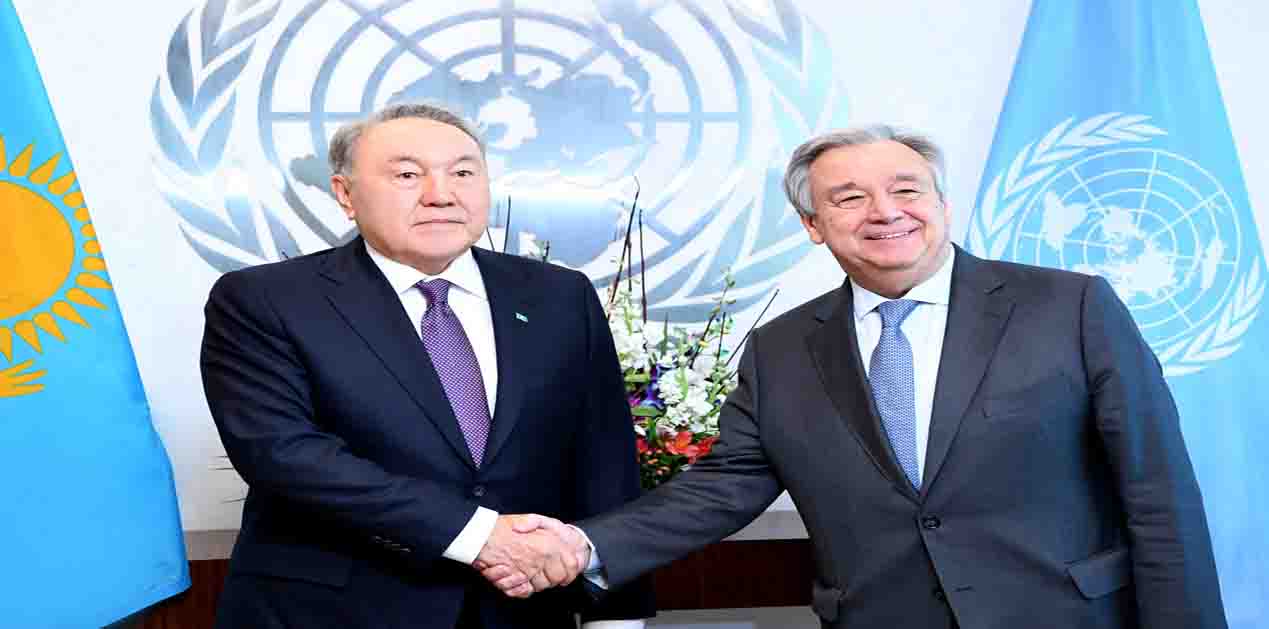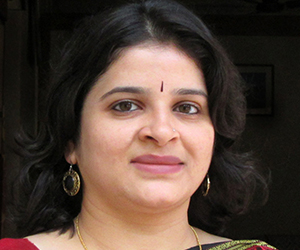Kazakhstan has recently concluded the Presidency of the United Nations Security Council (UNSC) for one month. It had assumed the Non-Permanent Membership (NPM) of the UNSC in 2017 for the tenure of two years. As a matter of fact, Kazakhstan is the first Central Asian Republic (CAR) to be elected to join this supreme body. Similarly, it is also the first CAR to preside over the UNSC. Through this “double first” opportunity, Kazakhstan has established itself as the leading promoter of international security and peaceful settlement of disputes.
Membership of the UNSC
The UNSC is one of the six principle organs of the United Nations. The apex body is assigned with the primary responsibility of maintaining peace and security in the world. It comprises of five permanent members, the Unites States (US), Russia, China, Britain and France. Similarly, there are ten Non-Permanent Members (NPMs) that are elected for two-year term by the General Assembly (UNGA). Every year, tenure of five countries ends and five new NPMs join the body. Thus, the NPMs of the UNSC keep rotating every year. The NPMs are selected in such a way that there is at least one member-state to represent each continent.
In the election at the UNGA on 28 June 2016, Kazakhstan received 138 votes and won from the group of Asia-Pacific states, defeating Thailand. It has been elected for the tenure of two years in 2017-2018. It has already completed 13 months of its membership, and has been an active participant in the UNSC proceedings. During the tenure, Kazakhstan is chairing three important UNSC committees: on Afghanistan-Taliban; on Daesh-Al Qaeda; and on Somalia-Eritrea. It has listed energy security, food security, water security and nuclear security as its policy priorities during this tenure.
In the Policy Address on 01 January 2017, President of Kazakhstan listed country’s seven objectives for UNSC, as Nuclear Free World, eliminating the threat of global war, promoting Central Asian interests, fight against terrorism, peace in Africa, sustainable development and improving and modernizing the UNSC and UN1. This priorities for the UNSC-NPM are in line with Kazakhstan’s foreign policy goals that were prescribed in the Foreign Policy Concept 2014-2020. It also adheres to its oath of ‘Nuclear Fee World’ that had resulted in getting passed its draft resolution as ‘Universal Declaration on the Achievement of a Nuclear-Weapon-Free World’ at the UNGA in 20152.
UNSC Presidency
The Presidency of UNSC keeps rotating amongst the member-states, and each gets the tenure of one month. Kazakhstan was tasked with the UNSC presidency for the month of January 2018. Being the first opportunity to lead the apex forum, there was great enthusiasm in the country, especially in the national media. Outcomes of the presidency were highlighted in number of articles. President Nursultan Nazarbayev delivered a Policy address to the UNSC, in which he introduced Kazakhstan’s ‘Concept Vision on Sustaining Global Partnership for Secure, Just and Prosperous World’. There was also a high-level thematic briefing ‘Non-Proliferation of Weapons of Mass Destruction: Confidence-Building Measures’, held on 18 January, which was also chaired by President Nazarbayev3.
Highlight of Kazakh presidency was the ministerial debate of the UNSC held on 19 January focusing on ‘Building Regional Partnership in Afghanistan and Central Asia as a Model to Link Security and Development’. It was chaired by Kazakh Foreign Minister (FM) Kairat Abdrakhmanov. The meeting was attended by Finance Ministers (FM) of Kuwait, Russia, Poland, Kyrgyzstan, Tajikistan and Uzbekistan, and deputy FMs of Great Britain, the Netherlands, the United States, Equatorial Guinea and Afghanistan. UN Secretary-General António Guterres presented his briefing on the subject followed by statements from all five CAR. They reiterated that there can be no military solution in Afghanistan and praised the on-going international efforts at stability. It expressed concern over security threats from Daesh and Al Qaida, and emphasized the need for “regional, interregional and international cooperation”4.
Under Kazakh presidency, there took place a high-level visit of the UNSC delegation to Kabul on 12-15 January. This was UNSC’s first visit to Afghanistan since 2010, which included record number of 11 permanent representatives. During the visit, meetings were held with country’s top-level leadership, representatives of political parties and civil society. This visit gave the UNSC an insight into the situation and an objective understanding of interests and priorities of the country and its civilian population5.
During the tenure of a month, 21 public meetings, 11 consultations, and two thematic meetings were held, and four presidential statements were released. Deliberations covered important areas like Syria, Middle East, North Korea, Congo and Afghanistan. Two resolutions were adopted on ‘extending mandate of UN peacekeepers in Cyprus’ and on ‘extending sanctions regarding situation in Central African Republic6. Kazakh presidency can also be credited with introducing the official ceremony to raise the flags of newly entering NPMs to the UNSC, which took place on 02 January this year7.
Significance
Kazakhstan has already completed UNSC presidency for one month, and also half of its two-year term as an NPM. This gives the country and the international community an opportunity to take stock of its efforts and achievements so far.
Being the first of the CAR elected in the highest forum, Kazakhstan’s membership is important for the country in particular and for the region in general. It has attracted UNSC’s attention to developmental challenges and security issues in the Central Asian region. The country has sought to advance regional cooperation and developmental partnerships with other CARs. Initiatives like first high-level visit to Afghanistan since 2010, and ministerial debate on situation in Central Asia and Afghanistan were instrumental in this regard.
In last couple of years, relationships between all the CARs have drastically improved. Other CARs also are actively engaging with the UN bodies and have endorsed the ‘Sustainable Development Goals’ in their domestic programs. The CAR have shown maturity and sustainability in their relationships with each other, have played positive role in the Afghan crisis; and have maintained relative peace and stability despite serious security concerns. At this backdrop, UNSC membership for one of the CAR is a vital development.
Apart from being the largest (area-wise) country in Central Asia and region’s largest economy, Kazakhstan has also established itself as a mediator in peaceful settlement of international disputes. UNSC membership was a due acknowledgement for its role in building peace, its faith in multi-lateral fora and contribution in disarmament. Keeping up with its international reputation during its presidency, Kazakhstan gave utmost importance to peace, stability and sustainable development8, which was reflected through the selection of issues and discussions that took place during this one month.
The UNSC membership at large and presidency in particular has reiterated the importance of newly emerging actors like Kazakhstan, and their potential contribution in making this world a better place.
Endnotes
• President of Kazakhstan’s Policy Address to the UNSC, 01 January 2017, at https://www.kazakhembus.com/kazakhstan-president-unsc-nursultan-nazarbayev
• Mallika Orazgariyeva, “UN Adopts Nuclear-Weapons-Free World Declaration initiated by Kazakhstan”, Astana Times, 08 December 2015, at https://astanatimes.com/2015/12/un-adopts-nuclear-weapons-free-world-declaration-initiated-by-kazakhstan/.
• “Outcome of Kazakhstan’s Presidency of UN Security Council: Regional and Global Success of Initiatives of Head of State”, Official Portal of Kazakhstan Permanent Mission to the UN, 31 January 2018, at http://kazakhstanun.com/outcome-of-kazakhstans-presidency-of-un-security-council-regional-and-global-success-of-initiatives-of-head-of-state/.
• “UN Security Council Debate Focuses on Regional Partnerships in Central Asia”, Astana Times, 30 January 2018, at https://astanatimes.com/2018/01/un-security-council-debate-focuses-on-regional-partnerships-in-central-asia/.
• “MFA on outcomes of Kazakhstan's Presidency in UN Security Council”, Kazinform, 01 February 2018, At http://www.inform.kz/en/mfa-on-outcomes-of-kazakhstan-s-presidency-in-un-security-council_a3140468.
• Tweet published by the Kazakh Mission to UN, 04 February 2018, at https://twitter.com/Kazakh_Mission/status/960282235671859200.
• “MFA on outcomes of Kazakhstan's Presidency in UN Security Council”, Kazinform, No. vi.
• “Kazakhstan Hands over UN Security Council Chairmanship”, The Brussels Times, 20 February 2018, at http://www.brusselstimes.com/eu-affairs/10387/kazakhstan-hands-over-un-security-council-chairmanship.
(Views expressed are of the author and do not necessarily reflect the views of the VIF.)
Image Source: https://astanatimes.com/wp-content/uploads/2018/01/9c1b4a7ad04f6b4d63968476dad05257.jpg











Post new comment